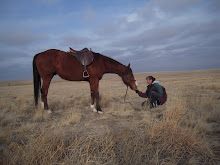I don't get to graduate - don't even get to come close to graduating - until I can make up my mind about what to focus in on for "my" research. But just when I think I've made up my mind, I stumble across something or have this flash and *poof* I've changed my mind, again.
The "biggies" come down to teacher education (particularly preservice teachers) - bridging the gap between their understandings of teaching and learning that they bring with them as students and what/how we expect them to develop as teachers, and then there's this separate notion of caring that has risen from a research project an SES prof. is letting me work on him with. 150 preservice PE teachers (to date) writing about a favorite teacher - and a vast majority describe their favorite teacher as "caring," though this idea of caring is defined in many different ways. So what IS caring? How do these entering preservice teachers understand "caring" in the classroom? Why is it important? How do these students envision themselves caring for their future students? Does their understanding of caring in teaching change as they progress through the program? More importantly, is the construct of caring something we should - something we even can - address more directly in teacher preparation programs?
And that's not even touching on the music teacher stuff....
And then, of course, there is the equine-guided learning. Does it "work"? Can and does it transfer to "real life" (i.e. are the concepts learned while working with the horse generalizable for individuals into other domains of their lives)? And a bunch more questions here...
See, the teacher education path is a good one - has been around and will continue to be around, and is something I am very passionate about - and there is still a very nice niche to be carved as far as the concept of caring. However, I am also passionate about equine-assisted and equine-guided-learning. It is more of an "up-and-coming" field - very young, very little empirical research - which is both good and bad.
At least I've got it down to two main areas.... that some progress, right?
Subscribe to:
Post Comments (Atom)


No comments:
Post a Comment